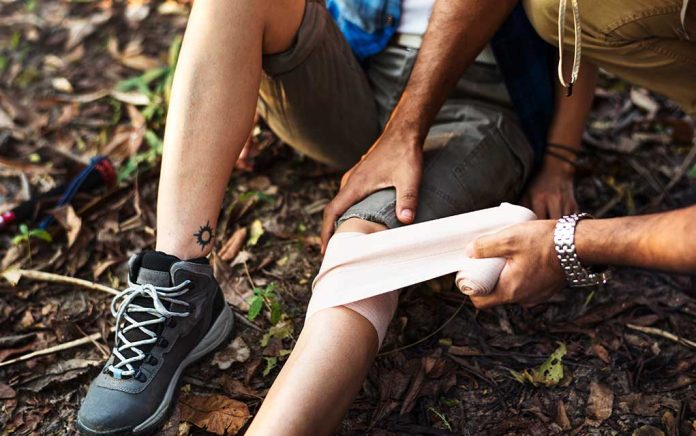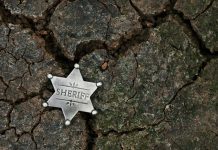(SurvivalDaily.com) – Imagine that you’re stuck in a survival situation — whether you’re lost in the woods or society is collapsing around your ears — and you need medical care. Who’s going to provide it for you? Here’s the bad news; it looks like it’s going to be you. Now here’s the good news; if you have the right info — you’re ahead of the game.
What You Could Be Facing
Daily medical care is pretty basic — but in an emergency, basics become luxuries. In a crisis, you may have to think about infections, injury from the disaster at hand, and secondary illnesses from smoke or other contaminants. This isn’t even to mention problems caused by the weather or even the physical labor that crises demand. In extreme cases, you could find yourself dealing with radiation sickness or gunshot wounds. And it’s all on you because you’re the one who is there without any professional medical help.
First Things First — A Comprehensive First Aid Kit
The first thing to do is buy or put together a good first aid kit that includes as many instructions as possible. Some kits have a set of laminated cards with key first aid information on them. These are a good thing to have even if you’re confident in your own first aid skills since you don’t know who’s going to end up using the kit. Someone without your abilities could be using it to patch you up.
A first aid kit should be able to handle most cuts, burns and even breaks if you make sure to include splints. You can add a few items to make it even more useful, though. For example, when dealing with gunshot wounds and other severe injuries, your first priority is to stop the bleeding. You can use heavy-duty gauze pads with attached bandages, like a military shell dressing. A new solution is a gauze pad impregnated with blood-clotting agents; these really stop bleeding quickly.
Don’t Forget the Meds
In addition to accidents and injuries, you need to consider illnesses too. Build up stocks of common drugs — painkillers and anti-inflammatories are obvious. Constipation and diarrhea remedies are also useful.
Another thing to look for is antibiotics. These are hard to get without a prescription — unless you look at aquarium suppliers. Many of the same antibiotics your doctor will give you are available, without a prescription, for use by fish enthusiasts. Get a stock of these, and keep them for emergencies. Here are some of the antibiotics regularly available from local and online retailers:
- Amoxicillin
- Doxycycline
- Penicillin
- Cephalexin
If radiation is a consideration, you can take iodine to help protect yourself. The best way to do this is to get potassium iodide tablets. After a nuclear attack or accident, radiation sickness is a real danger, though. Treat it with painkillers, antibiotics and electrolytes — these will give the patient a better chance of survival at lower radiation doses.
Finally, look at natural and herbal remedies. Most modern medications are derived from natural ones. Aspirin was originally extracted from willow; digitalin comes from the foxglove plant. If you know how to identify the plants they derive from, you can find effective substitutes for many medicines.
As well as being useful in a survival situation, some basic medical knowledge can save a lot of money even when things are good. There’s no need to go to the doctor with a minor medical problem when you have the skills and tools to treat it yourself. How far you go in survival medicine is up to you, but knowing the basics is vital.
~Copyright 2021, SurvivalDaily.com

















